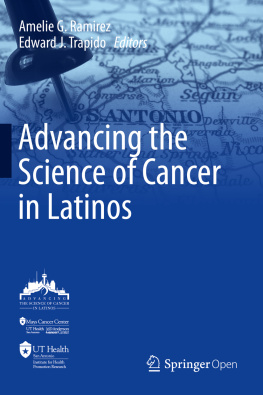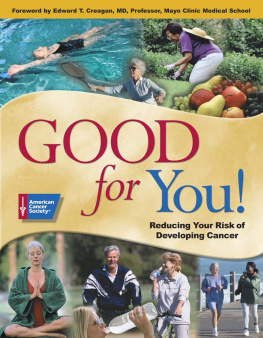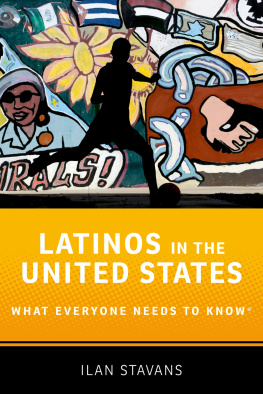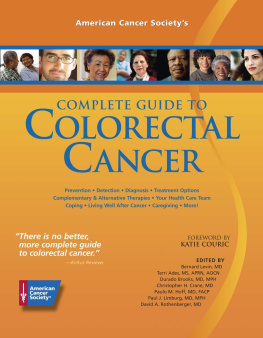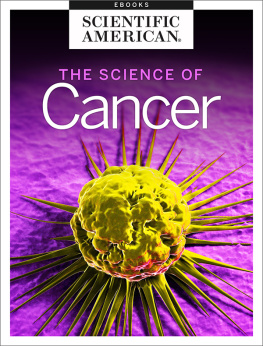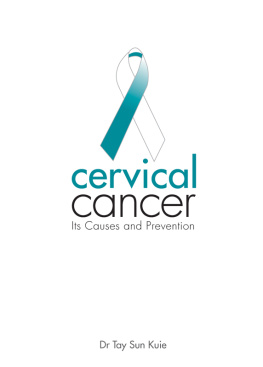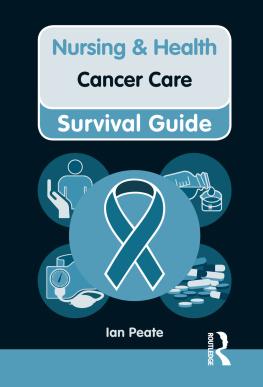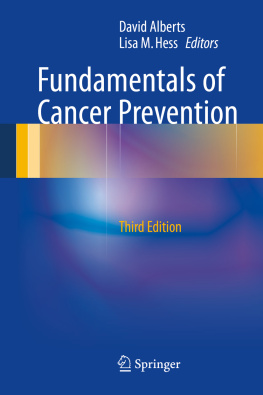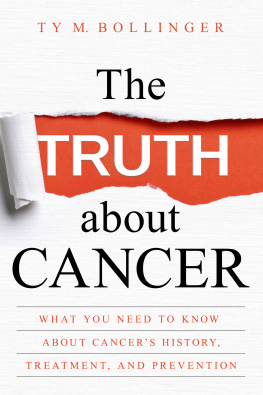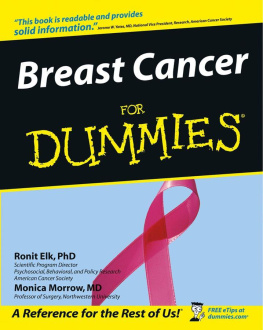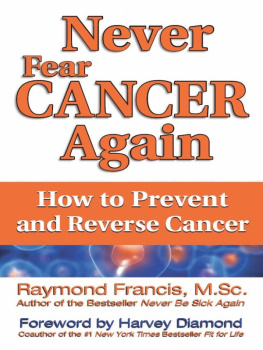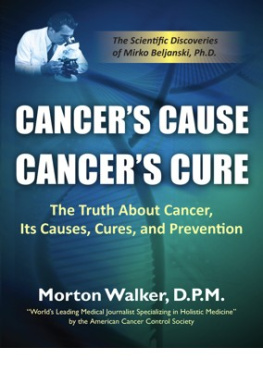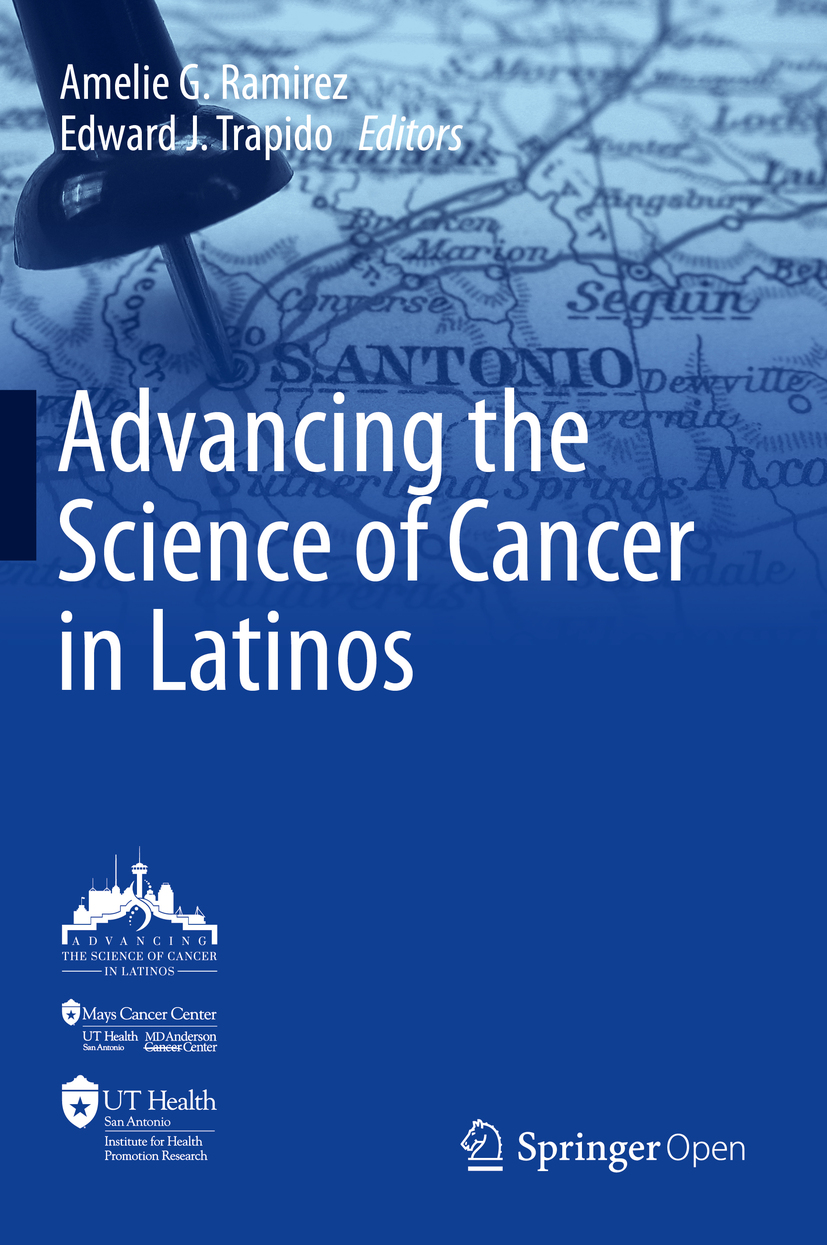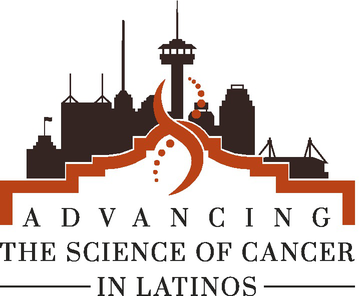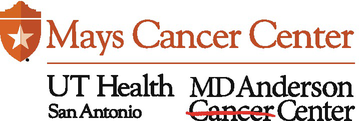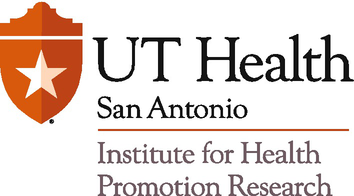Amelie G. Ramirez (editor) - Advancing the Science of Cancer in Latinos
Here you can read online Amelie G. Ramirez (editor) - Advancing the Science of Cancer in Latinos full text of the book (entire story) in english for free. Download pdf and epub, get meaning, cover and reviews about this ebook. year: 2019, publisher: Springer Nature Switzerland AG, genre: Politics. Description of the work, (preface) as well as reviews are available. Best literature library LitArk.com created for fans of good reading and offers a wide selection of genres:
Romance novel
Science fiction
Adventure
Detective
Science
History
Home and family
Prose
Art
Politics
Computer
Non-fiction
Religion
Business
Children
Humor
Choose a favorite category and find really read worthwhile books. Enjoy immersion in the world of imagination, feel the emotions of the characters or learn something new for yourself, make an fascinating discovery.
- Book:Advancing the Science of Cancer in Latinos
- Author:
- Publisher:Springer Nature Switzerland AG
- Genre:
- Year:2019
- Rating:4 / 5
- Favourites:Add to favourites
- Your mark:
Advancing the Science of Cancer in Latinos: summary, description and annotation
We offer to read an annotation, description, summary or preface (depends on what the author of the book "Advancing the Science of Cancer in Latinos" wrote himself). If you haven't found the necessary information about the book — write in the comments, we will try to find it.
This open access book gives an overview of the sessions, panel discussions, and outcomes of the Advancing the Science of Cancer in Latinos conference, held in February 2018 in San Antonio, Texas, USA, and hosted by the Mays Cancer Center and the Institute for Health Promotion Research at UT Health San Antonio.
Latinos - the largest, youngest, and fastest-growing minority group in the United States - are expected to face a 142% rise in cancer cases in coming years. Although there has been substantial advancement in cancer prevention, screening, diagnosis, and treatment over the past few decades, addressing Latino cancer health disparities has not nearly kept pace with progress.
The diverse and dynamic group of speakers and panelists brought together at the Advancing the Science of Cancer in Latinos conference provided in-depth insights as well as progress and actionable goals for Latino-focused basic science research, clinical best practices, community interventions, and what can be done by way of prevention, screening, diagnosis, and treatment of cancer in Latinos. These insights have been translated into the chapters included in this compendium; the chapters summarize the presentations and include current knowledge in the specific topic areas, identified gaps, and top priority areas for future cancer research in Latinos.
Topics included among the chapters:
- Colorectal cancer disparities in Latinos: Genes vs. Environment
- Breast cancer risk and mortality in women of Latin American origin
- Differential cancer risk in Latinos: The role of diet
- Overcoming barriers for Latinos on cancer clinical trials
- Es tiempo: Engaging Latinas in cervical cancer research
- Emerging policies in U.S. health care
Advancing the Science of Cancer in Latinos proves to be an indispensable resource offering key insights into actionable targets for basic science research, suggestions for clinical best practices and community interventions, and novel strategies and advocacy opportunities to reduce health disparities in Latino communities. It will find an engaged audience among researchers, academics, physicians and other healthcare professionals, patient advocates, students, and others with an interest in the broad field of Latino cancer.
Amelie G. Ramirez (editor): author's other books
Who wrote Advancing the Science of Cancer in Latinos? Find out the surname, the name of the author of the book and a list of all author's works by series.

